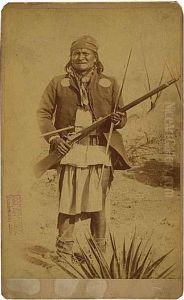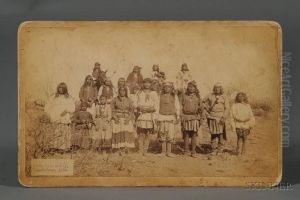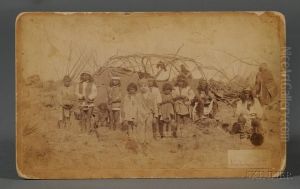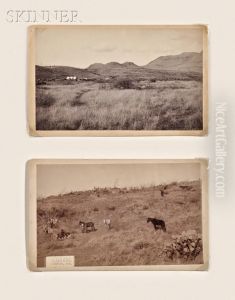Camillus Sydney Fly Paintings
Camillus Sydney Fly, often known as C.S. Fly, was an American Old West photographer who is most famous for his photography documenting the end of the Apache Wars and the people of Tombstone, Arizona. Born in 1849, Fly became an iconic figure in the history of the American West photography through his vivid images that captured a transformative era in American history.
Fly moved to Tombstone in 1879, during the boom of the silver mining industry, and opened a studio and boarding house on Fremont Street, alongside his wife Mary Fly, who was also a photographer. His works provided an invaluable visual record of frontier life, including the infamous Gunfight at the O.K. Corral, where he took the only known photo of the site just after the shootout in 1881. Fly's studio became a hub of activity, and his photographs chronicled the daily life and struggles within this tumultuous region.
He was known for his daring as he ventured into dangerous territories to capture images of Geronimo's surrender and Apache life in the 1880s. These photos are some of the most significant records of Native American history from that period. Fly's intimate access to the Apache allowed him to document their lives during a time of great upheaval and forced relocation.
C.S. Fly's contribution to the chronicles of the American West extends beyond his photography; his studio was a meeting place for notable figures, and he was a key witness in the aftermath of the O.K. Corral shootout, testifying in court. Despite his significant work, financial stability eluded Fly, and he experienced various ups and downs throughout his career.
Tragically, Fly's life was cut short when he died in 1901. Although he did not receive widespread recognition during his lifetime, his photographs have since gained acclaim, preserved in archives and valued for their historical significance. Fly’s legacy lives on through his body of work, providing a window into a bygone era and offering a visual narrative of the American West's final frontier days.



